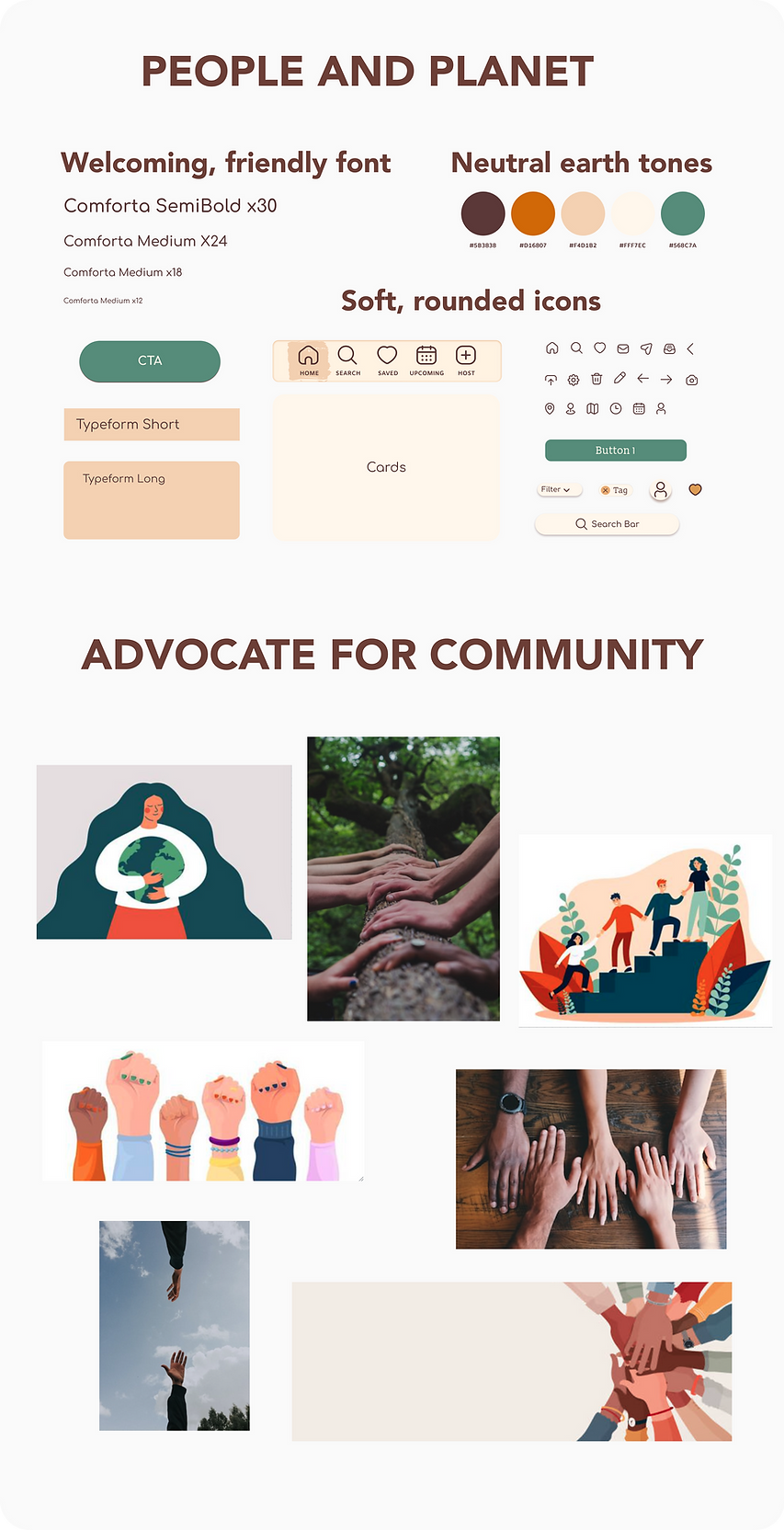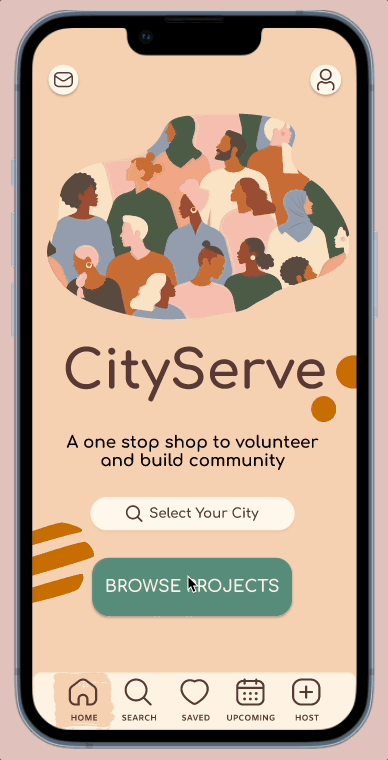
CityServe
Mobile App Design
WHAT IF GIVING BACK TO YOUR COMMUNITY WAS MADE EASIER?
Serving others has the unique ability to bring people together from across different backgrounds with the unified purpose of bettering our communities. Nonprofits rely on volunteers for their unique skills and knowledge of the needs of their communities. Studies show that individuals who volunteer tend to experience lower levels of stress and feel a greater sense of purpose in their lives.
So then why is it so hard to actually volunteer? Lengthy and tedious applications, poor communication with event organizers, and simply not knowing where to look are a few of the challenges volunteers have cited in breaking the barrier to entry in the volunteer space.
THE GOAL
How might we make the experience of signing up for volunteer opportunities easy and convenient instead of complicated and dreadful?
How might we make communication between nonprofits and volunteers more open, transparent, and clear?
How might we reduce the burden of time and effort needed for nonprofits to find and vet volunteers?
THE PROCESS
.png)
GAINING EMPATHY
To understand the challenges in the volunteer space more, I interviewed 6 participants who were a mixture of people who are either 1. interested in volunteering, 2. have worked or volunteered for nonprofits in the past, and/or 3. have organized volunteers before. The main questions I was looking to answer were:
What attracts people to volunteering in their communities?
What challenges do volunteers face when looking for and signing up for volunteer opportunities?
What challenges do nonprofits face when recruiting volunteers?
KEY INSIGHTS FROM INTERVIEWS
-
Volunteers and volunteer organizers are motivated by a variety of things; altruism, building connections, breaking into a new field, setting a good example for their kids, and more.
-
Clear, two directional, and direct communication between volunteers and volunteer organizers is crucial to a successful volunteer experience.
-
Everyone is busy - tools that are convenient, and easy to use are valued by volunteers and nonprofits.
PERSONAS
After synthesizing my interview findings, I narrowed down my key audience to two types of users: volunteers and volunteer organizers.



User Personas
COMPETITIVE ANALYSIS
I wanted to get a better understanding of what other products are out there trying to connect volunteers to nonprofits. I conducted a heuristic and competitive analysis on three leaders in the volunteer space- CatchaFire, Taproot, and VolunteerMatch.



-
Applications are too lengthy
-
It’s unclear if an opportunity is still available or not
-
No way to communicate with volunteer organizers
-
The requirements for an opportunity are unclear
MARKET GAPS
IDEATION
With an understanding of users and the market, I began sketching ideas to make them tangible. I then narrowed down the most important elements for users to accomplish their goals.

Sketches
INFORMATION ARCHITECTURE
With the most important features in mind, it was time to lay out the structure and hierarchy of the product. In my information architecture, I had three priorities for users:
Streamlined search and application process
Easy and simple navigation, with quick access to essential actions
Balance of complex essential information and simplicity




User Flows
BRINGING CITYSERVE TO LIFE
CHOOSING THE VISUALS
I used my empathy maps as a foundation in building out the style guide.
.png)
THE RESULT

TESTING
With a prototype in hand, I interviewed eight users to ensure the product offers a smooth experience. Users completed specific tasks directly related to the product’s red routes. The first round of usability tests helped identify a few critical issues in the design.
Overall, users liked the look and feel of the app. They found features such as filters during search, saving projects for later, and the messaging function to be useful. They also provided feedback on small adjustments to enhance the overall experience.
REFINEMENTS
Sort feature while browsing projects
Rename “Post a Project” to “Host a Project” to reduce confusion around purpose
Calendar integration for ease of planning
Outstanding Questions
-
How different are the needs of nonprofits for skilled vs unskilled volunteers?
-
Are the gaps in finding volunteers the same for both?
-
-
How can tools in the nonprofit space confirm they are fulfilling moral and ethical obligations? At what point do we consider a product to be “over-stepping”?
-
How can beneficiaries of nonprofit/volunteer work be involved in the product design process, and how can we as product designers elevate their voices?
